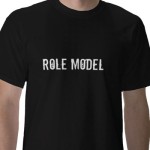 The other day I stepped into a local coffee shop where I smiled and said hello to the barista behind the counter. The young woman neither responded verbally nor smiled, but rather, stared at me blankly waiting for me to tell her the next monotonous coffee order she’d have to fill. While her response was obviously far from what any employer would hope for in a customer service representative, what struck me most about my barista was how apparently miserable she was in her job. I felt sorry for her.
The other day I stepped into a local coffee shop where I smiled and said hello to the barista behind the counter. The young woman neither responded verbally nor smiled, but rather, stared at me blankly waiting for me to tell her the next monotonous coffee order she’d have to fill. While her response was obviously far from what any employer would hope for in a customer service representative, what struck me most about my barista was how apparently miserable she was in her job. I felt sorry for her.
The barista with the blank face clearly wasn’t happy, and because of that, I have to say that she wasn’t excellent in her job. Getting a cup of coffee should be a pleasant experience, not one where the customer feels that his or her order is a burden. Because of my barista’s poor response, my overall experience in the coffee shop that day was lackluster, even though the coffee was hot and delicious. I thought more broadly about the excellent customer service experiences I’ve had elsewhere and the excellent individual performance I’ve witnessed. While professional excellence may vary from one person to the next, it struck me that there are three hallmarks of personal excellence that are always in place – and that this unfortunate young woman lacked. Excellent career professionals:
1. Sincerely want to better the business. Have you ever come up with a solution to a problem in your company or suggested a better way of doing things or of providing better service to your clients? Do you treat the company you work for as though it is your own? If you love what you do and you are committed to excellence, you’ll be constantly on the lookout for ways to improve your business, whether it’s your “coffee shop” or someone else’s. If my barista owned the shop, I doubt that she’d have behaved as she did. Or certainly, if she did, the shop couldn’t survive long.
2. Are constantly learning and enlarging their expertise. Do you read books, professional journals, and newsletters pertaining to your work? Do you attend conferences of your professional association and participate in courses, either face-to-face or online? Do you know and regularly visit several blogs and/or websites that help you keep abreast of your field? The career professional who is passionate about gaining new knowledge is better equipped for the future and has more to contribute. It’s a likely guess that my unfortunate barista hadn’t learned anything new on her job or about her work since her initial training.
3. Get in the “flow” of their work. Flow occurs when we lose track of time and are 100% engaged in what we’re doing. Do you find yourself staring at the clock and waiting for each break or the end of the day? As the day is winding down do you find yourself counting the minutes until you can bolt out the door? If you’re just punching a clock at work, like my barista, you’re most likely not performing excellently. Notice the times when you’ve gotten lost in your work and were fully present in the moment. Strive to have more and more flow times like those.
Career professionals who are truly excellent don’t put on a set of behaviors and act the part (though in this case, I’d have preferred that to my barista’s blank stare). They are excellent from the inside out, making their excellence genuine.
Are you looking for more ways to increase your personal and professional excellence? Or, would you like to use an interesting tool to help your employees to increase their personal and professional excellence? If so, check out my Pinterest board, “25 Rules for Being Excellent” at http://pinterest.com/drlaurahills/25-rules-for-being-excellent/. And the next time you encounter excellence – or the opposite of excellence, like my barista with the blank stare — think of the three hallmarks of excellence I’ve identified and look for other lessons that you can apply to your own life and career. And remember, your client’s experience will suffer if you’re not excellent – even if your coffee is hot and delicious. – Dr. Laura Hills, President, Blue Pencil Institute, www.bluepencilinstitute.com.
 This week, a marketing student from a local university wrote to me to ask for my thoughts about entering the field. Here’s what I told him. See if you agree:
This week, a marketing student from a local university wrote to me to ask for my thoughts about entering the field. Here’s what I told him. See if you agree:



